We use several words to divide time, but how many people use managers as lines in the sand?
It’s normal to signpost key stages of life using the birth of a child or a wedding day, for example. But when I look through my life lenses, I find myself using Bromley managers as tidemarks as they meant different things to me at different stages of my life.
Speak to many an Arsenal fan and they will refer to Arsene Wenger as Uncle Wenger. It makes sense. When someone presides over your nearest and dearest for a long period of time, you develop a bond and an affinity with that person. They become family. You can't imagine life without them.
Arsenal fans eventually turned on Wenger and ran him out of the club, but even their rage was coated in love. They hated that they had to do that to him because he was family.
I’ve had four Bromley managers that have defined different eras of my life, each one leaving an indelible mark in the process.
George Wakeling
Stuart McIntyre
Mark Goldberg
Neil Smith
George Wakeling (teens):
The manager I joined Bromley with. As an impressionable 14-year-old, I took my cues from the older lads at the game and they all respected George Wakeling. By the time I pitched up at the club in 1996, Wakeling had been at Bromley for six years and had brought promotion and cup success.
Long before Andy Woodman put it in his phrase book, George Wakeling was my first introduction to the idea of ‘Bromley DNA’. I grew up on a diet of Wakeling sides that were better than the sum of their parts. If I go back and look at the archives, I’m sure I’ll find examples of bad drubbings, but there was never a sense that a Wakeling side threw in the towel.
George left the club during my two-year hiatus in Jamaica, but his triumphant return in January 2004 culminated in the most improbable promotion I have witnessed in Bromley’s history. Needing to essentially win every game of the season with 13 games remaining, Bromley won 12 of the 13, drawing the other, before winning the play-offs to earn promotion to the Ryman Premier League.
People will think I say this with rose-tinted glasses, but the Ryman Division One play-off final win against Horsham in 2004 is one of my top three moments supporting Bromley. Honestly, it’s right up there with the FA Trophy final win in 2022.
I realise you probably have to be a fan of a certain vintage to understand this, but if you’re a longstanding Bromley fan over the age of 35, chances are George Wakeling holds a very fond place in your heart.
Stuart McIntyre (uni years)
Before George Wakeling returned to the club, there was a period in between where Stuart McIntyre brought some pride back to proceedings following Garland/Seamons/Hume and other managerial disasters.
In the years prior to McIntyre’s appointment in 2001, Bromley had reached what was certainly their lowest ebb in my time following the club. The preceding seasons had witnessed Bromley come close to relegation to the Kent League and rumours were circulating that the club was due to go out of business.
Into that breach stepped Macca, who stabilised the club on the pitch. Yes, he failed to get Bromley into the Ryman One promotion spots, but few would begrudge him his flowers for the London Cup win in 2003. That win was the moment when Bromley found their soul again.
I will always maintain that to get to George Wakeling back at the club we had to go through McIntyre first. It was all part of the process of the club re-discovering its identity.
Mark Goldberg (20s)
No matter where you stand on Mark Goldberg, the success Bromley achieved under his stewardship is incontrovertible.
Two Promotions (Ryman Premier play-off winners + Winners of the Conference South)
Five FA Cup 1st round appearances
One Kent Cup
One London Cup
Mark was the Bromley manager for the majority of my 20s and he, more than anyone, is the reason I’m so sanguine about our performances now. Unprecedented success will do that to a man.
He had his flaws. In between the successful seasons there were some horrific ones: like the season we went 17 games without winning. But, on the whole, his reign was synonymous with free-flowing football and don't-look-away drama on and off the pitch.
You know a manager has made an indelible mark on your life when their departure comes as a shock. It's not that I thought Mark would manage forever, but eight seasons into his reign I hadn’t envisioned a time when he wouldn’t be manager.
Yet, the funny thing is, he was more like a stepdad to me.
Maybe that’s because he took over from George Wakeling and Billy Smith, which no fan wanted at the time. Or maybe it’s because Mark and I once fell out because I thought he should’ve been sacked in 2012/13 and didn’t shy away from being clear about it.
In that sense, he was never a favourite of mine, but I learnt with Mark that you don’t have to feel a deep emotional connection with a manager to respect what they have done for your club.
When he left, I wrote a blog entitled Mark Goldberg: Bromley FC Legend. There can be no more apt moniker than that because what he achieved was legendary.
Neil Smith (30s)
The gaffer that has probably left the most indelible mark on me was the Bromley manager before Andy Woodman: Neil ‘Smudger’ Smith.
When Smudge got the full-time job at Bromley in February 2016, I was nonplussed. I felt he deserved a chance to show what he could do, but I also wouldn’t have minded if the club rolled the managerial dice that summer.
As it was, Smudge not only kept Bromley up in our first season in the National League, over the next five seasons he established us as a top-half side while taking us on a wild ride to the FA Trophy final in 2018.
I associate Smudge as my gaffer when I hit my mature stage as a Bromley fan and in life. Now in my 30s, I was watching my team play at their highest level in a new age of professionalism and, in many ways, it felt like we'd come full circle to the ethos of the Wakeling era. This was a battling, never-give-up side playing for a gaffer who was deeply connected to the area and who had endeared himself to almost all of the fanbase.
During his tenure, I was writing weekly match reports and occasional columns for the Non-League Newspaper. This put me in close proximity to Smudge, and perhaps it was this closeness that made me come to see him as more than just a Bromley manager. Then again, everyone who knows Smudge in the football world says he’s a top guy.
As Bromley grew in the National League and adapted to new professional surroundings, Smudge was the exact character needed to lead the club and galvanise the local community at the same time.
Dave Roberts (RIP) - His sold out book launch at Waterstones Bromley. Smudge made time to ensure he was there to support it.
It sounds like a cliché but being from Bromley meant it was easier for him to grasp the importance of the football club to the fans.
Smudge wasn’t at Bromley in the capacity as first team manager as long as Mark Goldberg, but given he joined the club as Mark’s first team coach in 2011/12, by the time of his sacking he had pretty much been there for ten years.
When Neil Smith left the club, it felt like more than just a manager being replaced. To me, it was almost like a family member was departing.
I’ll freely admit that it took a long while for me to come to terms with it and to warm to Andy Woodman as his replacement. This had nothing to do with Andy and more to do with me losing what felt like a father figure.
It was this sentiment that led me to approach Smudge about appearing on my podcast The Game is The Game. I wanted to break bread with him and look back at that ten-year period, as well as his career in the game.
It’s weird because, as well as I’d gotten to know Neil as a manager of Bromley, I only really knew him in that context. Recording this podcast episode allowed me to dive deeper and get to know more about him as a person and a manager outside of my Bromley paradigm.
If anything, the episode only made him go further up in my estimation.
You can listen to Neil’s episode of The Game is The Game wherever you listen to your podcasts.
Postscript:
Of course, some will say: What about Andy Woodman?
Andy has only been in the job for two and a half seasons at the time of writing, so I feel it’s too early to make any grand statements about his time as manager. But I make no bones about it: Relative to the level of football, he’s the most successful manager Bromley have had in the modern era.
Smudge may have taken Bromley to Wembley for an FA Trophy final, but, ultimately, Andy did the same and won. Lifting the FA Trophy is still the best thing I’ve ever seen Bromley do.
Should Andy leave the job anytime soon, he has already earned his place on my managerial top table. And, as it stands, he is the manager who defines my football-supporting life as I enter my 40s.
Like Wakeling and Smudge before him, Andy speaks of the Bromley DNA and has created a side that grafts and battles against the odds.
His journey is only just beginning but he has already understood the foundations that are needed to win fans over and ensure that, in time, we will speak of the Woodman era as a key stage of our lives.
This is my story and my journey, but who are the managers you identify as the pillars of your life? Why did they mean so much to you? How and why were they able to make a human connection? Were there any that you mourned when they left the club?
Join me in the comments below.
Thanks for taking the time to read the article above.
If you haven’t as yet make sure you read the other articles in the archive.
If you’d like to show an appreciation for the work that goes into this newsletter you can buy me a coffee through the link below.
You can also find me on Twitter - here
Most importantly of all subscribe to the newsletter to ensure you get these updates direct to your inbox.




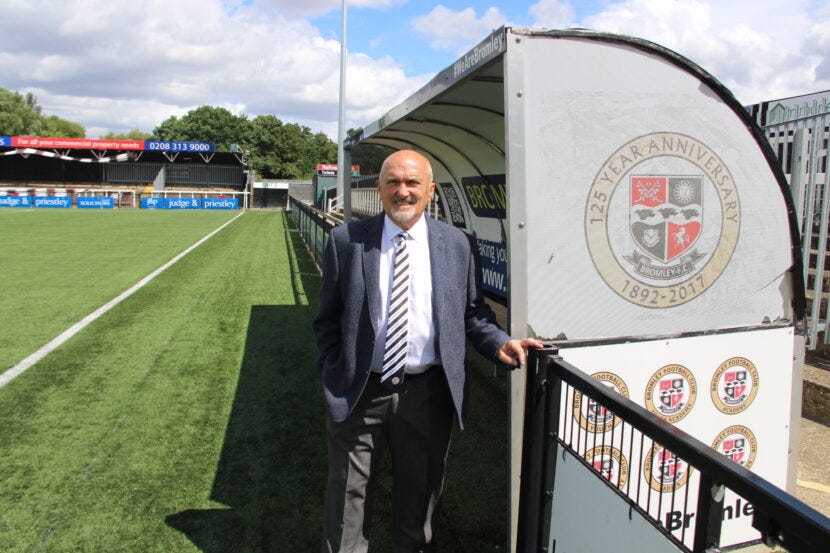
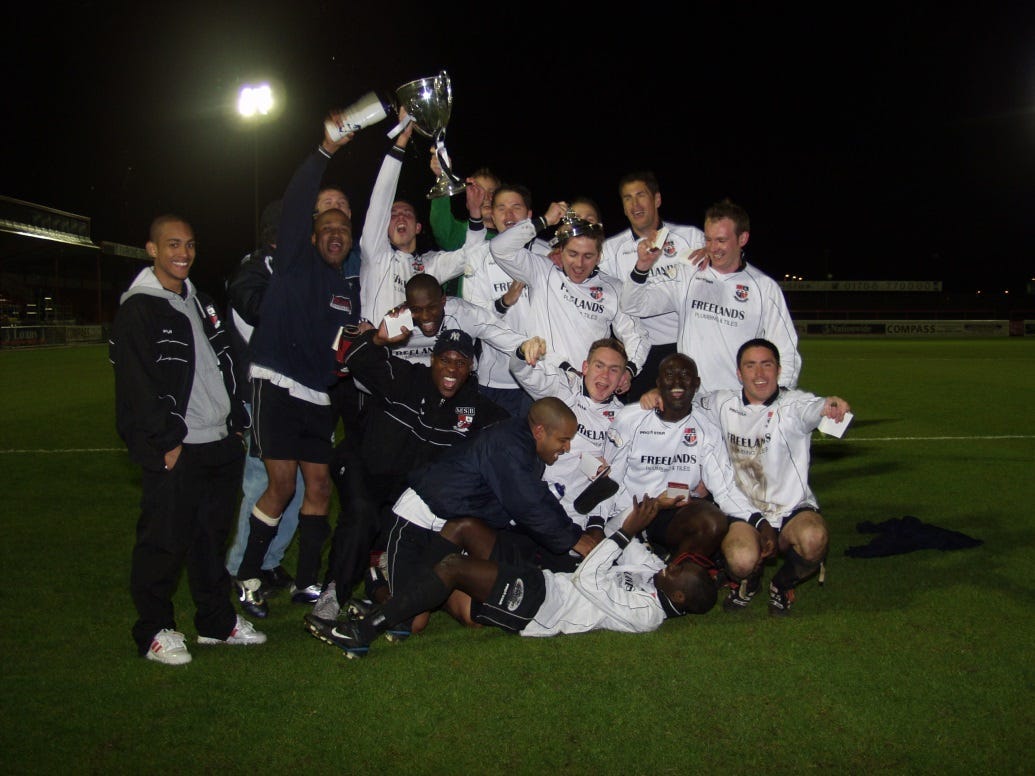
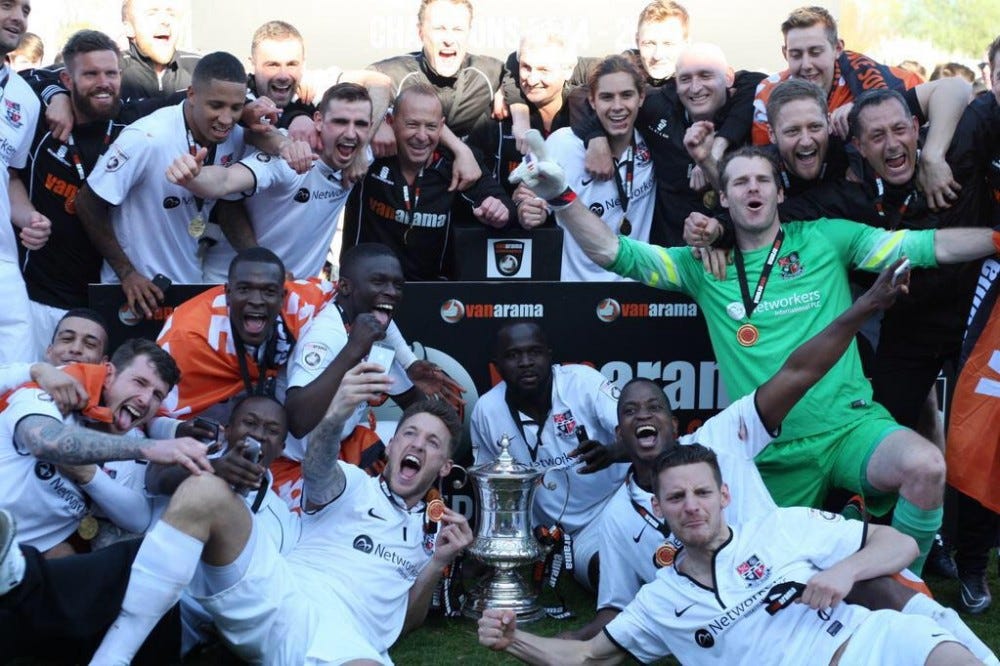
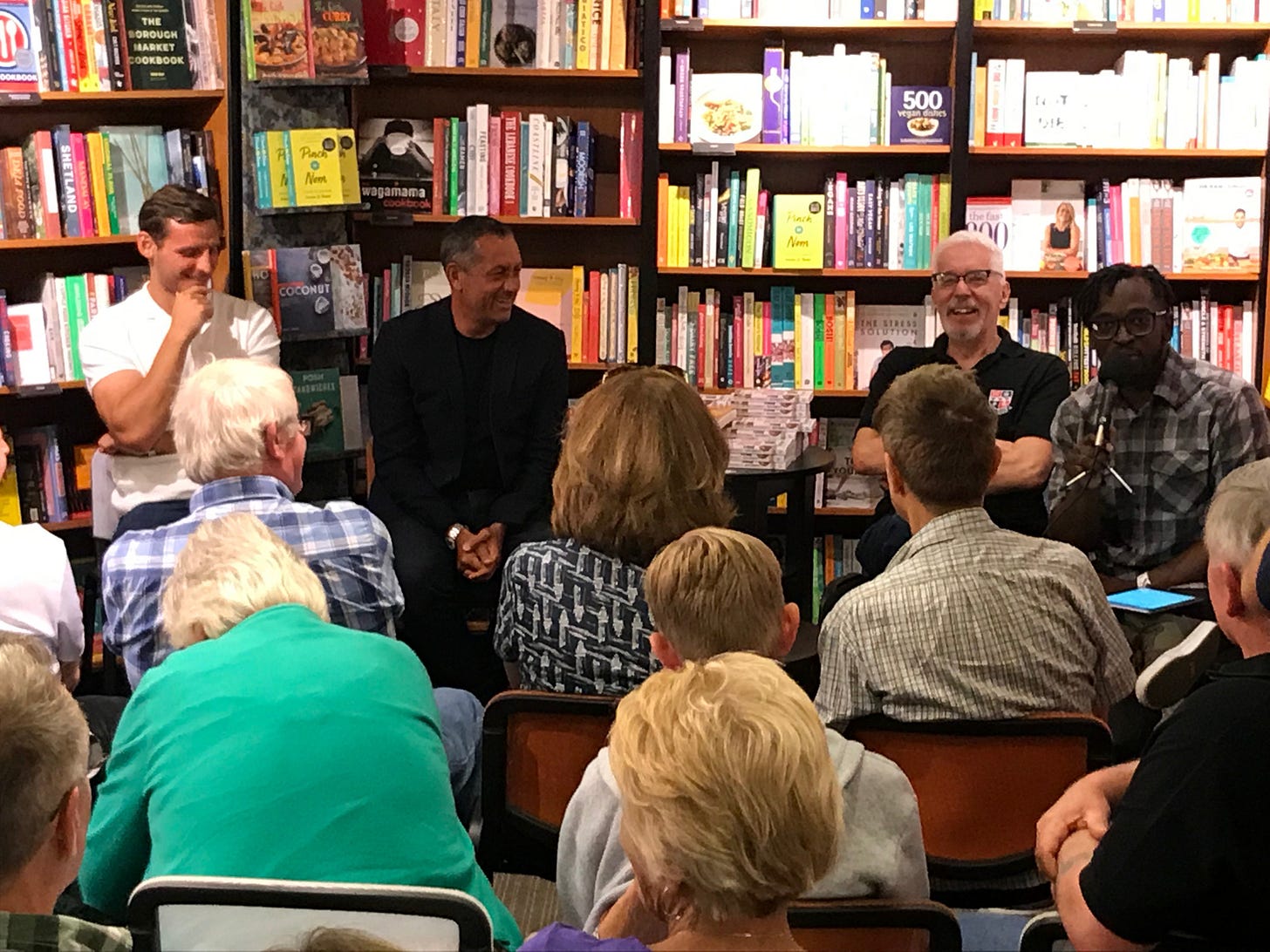
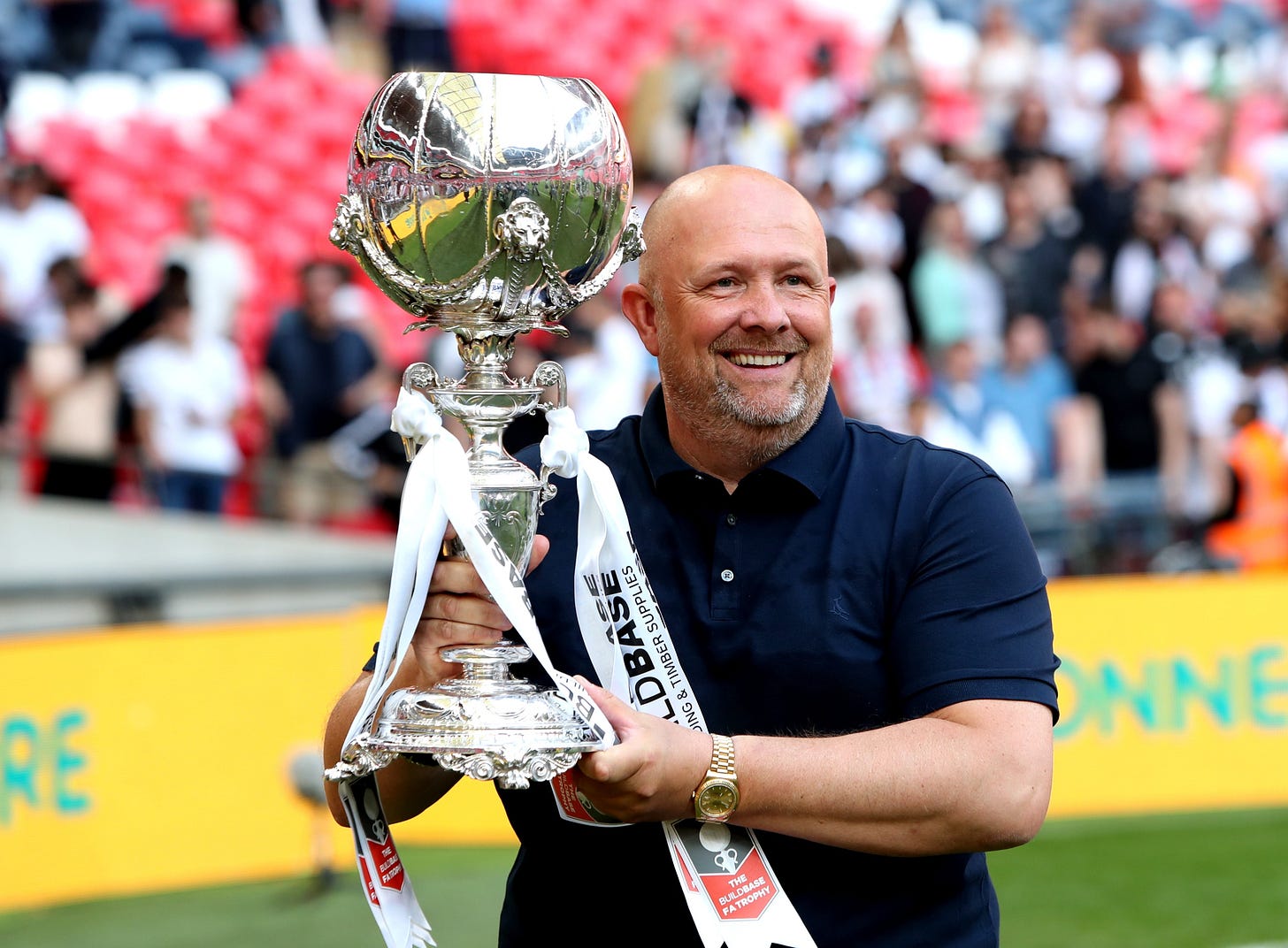
Great piece Mash, really good angle. Still got your pod to listen too as well, you know how much I love Smudge!
Talking about what team to pick. I will always remember Trevor Ford when I was a student and came to watch the game v Bognor at Bognor show me the team sheet before he had submitted it and invited my thoughts!